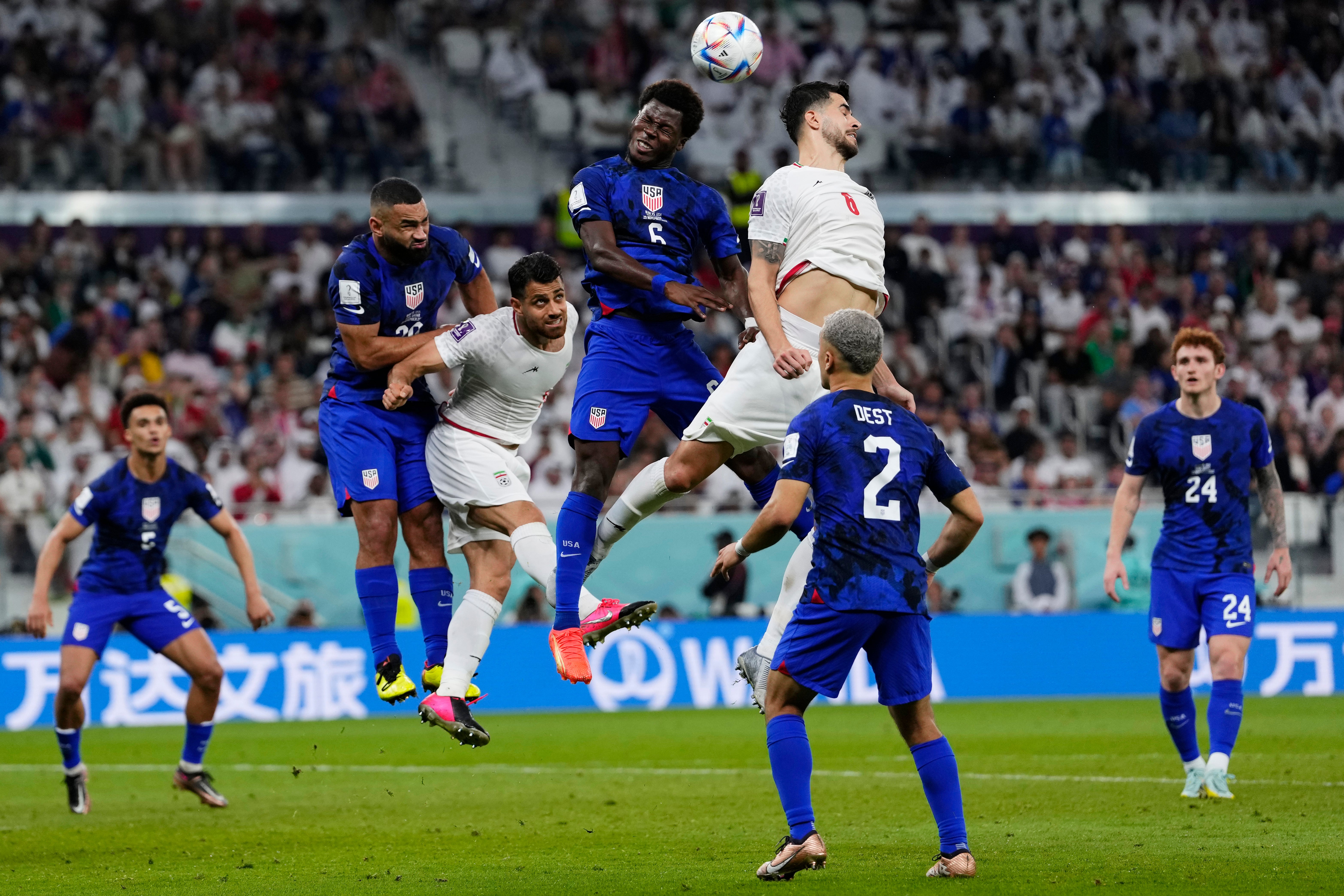In protest-riven Iran, some celebrate U.S. World Cup victory
Soccer fans in Iran's Kurdish majority region have cheered the U.S. win over Iran in a politically charged World Cup, amid ongoing anti-government protests

Your support helps us to tell the story
From reproductive rights to climate change to Big Tech, The Independent is on the ground when the story is developing. Whether it's investigating the financials of Elon Musk's pro-Trump PAC or producing our latest documentary, 'The A Word', which shines a light on the American women fighting for reproductive rights, we know how important it is to parse out the facts from the messaging.
At such a critical moment in US history, we need reporters on the ground. Your donation allows us to keep sending journalists to speak to both sides of the story.
The Independent is trusted by Americans across the entire political spectrum. And unlike many other quality news outlets, we choose not to lock Americans out of our reporting and analysis with paywalls. We believe quality journalism should be available to everyone, paid for by those who can afford it.
Your support makes all the difference.Soccer fans in Iran's Kurdish region set off fireworks and honked car horns early Wednesday to celebrate the U.S. win over the Iranian national team in a politically charged World Cup match that divided the protest-riven country.
Cheering fans hit the streets in Iran's Kurdish-majority province of Kurdistan and fireworks lit the skies over the Bukan area of West Azerbaijan province to celebrate the Iranian team’s 1-0 loss.
Some shouted “Death to the dictator,” a popular protest slogan referring to the Iran’s Supreme Leader Ayatollah Ali Khamenei.
The Kurdish areas of Iran have been hot spots of ongoing anti-government demonstrations.
The protests first erupted in September, following the death of a young Kurdish woman in the custody of Iran's morality police in the capital of Tehran.
The protests quickly morphed into the most serious challenge to Iran's theocracy since its establishment in the 1979 Islamic Revolution. Iranian authorities have blamed foreign actors, chiefly the U.S., for orchestrating the protest movement, but have provided no evidence.
Iran’s Kurdish-majority areas have seen waves of unrest amid nationwide protests against the government. The national team’s loss to the United States was seen by some as a victory against what they see as oppression by the government.
Even in areas of Tehran some chanted protest slogans following the U.S. win.
Videos posted online showed cars out on the streets of Saqqez, the capital of Kurdistan province, and the home town of Mahsa Amini, the young woman died in police custody in September.
But not everyone was cheering. Parham Azmand, a soccer fan in Tehran, said the Iranian team had done its best.
“We worked very hard but we couldn’t score although we did whatever we could," he said. "This was their day (the Americans). Our players did their best and I hope we will perform better in future world cups and God willing go through to the second round.”
Following the match, state TV commentator Mohammad Hossein Misaghi said the U.S. took advantage of “many opportunities” in the match.
“It was not our day,” said another commentator, Mohammadreza Ahmadi. He brushed off the defeat, saying “a match is like that; it has win and loss."